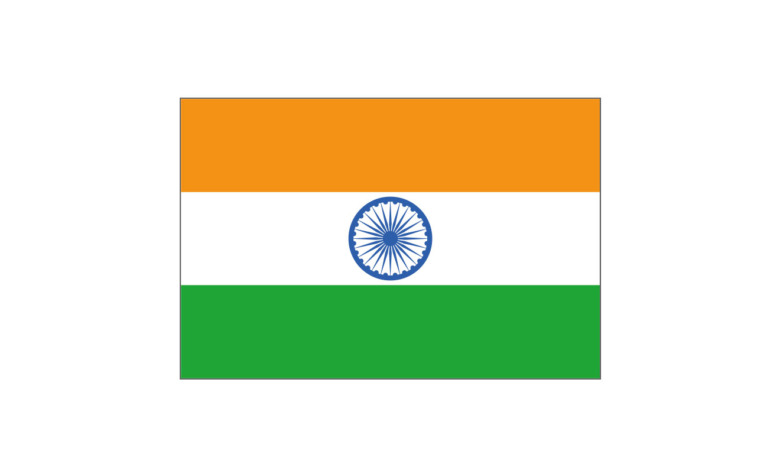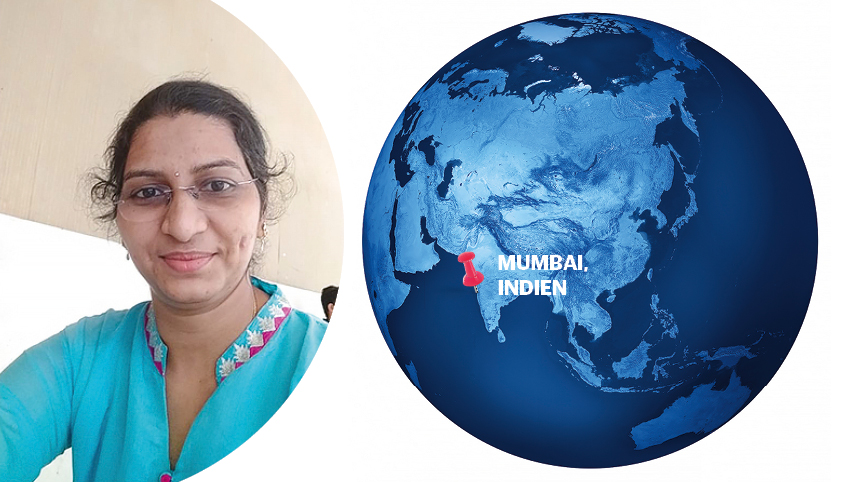India: ”The biggest reward is the gratitude in patients’ eyes”
When India shut down at the beginning of the pandemic, local trains stopped running in Mumbai. For intensive care nurse Amruta Kambli, it suddenly took several hours to get to the hospital. Once there, she worked 12-hour shifts in difficult circumstances - something that makes her feel proud in retrospect.
“I could wait for an hour without a bus coming, and if a bus did come eventually, it didn’t pick up any new passengers. Who takes care of the patients if the nurses are stuck at home? Now it only takes 1½ hours to get to work, so that’s nice.
When the pandemic came, my husband Amit lost his job as a film animator, and I was the only one in the family with an income. I was very stressed about not being able to afford the rent, my daughter Abhishri’s school fees of almost SEK 7,000 per school year and my father’s cancer treatment. Several colleagues had difficulty finding somewhere to live during this time, as nobody wanted to rent to covid nurses.
I have not had covid and nor has anyone in my family, but several of my colleagues have had positive test results. They’ve received the best possible care for free and then returned to work at the intensive care unit.
It was toughest when the second wave hit in April this year. We had 80 to 90 new patients every day and not enough beds. There was a shortage of oxygen and we lost patients. I tried to support my staff, keep calm and work efficiently. I worked 10 to 12 hours a day and did my best to help everyone around me. I’m proud of how I managed the situation and have received a certificate for good work from my employer.
Amruta Kambli
Age: 38.
Workplace: Nurse in charge of the intensive care unit at Nesco Jumbo Covid Centre in Goregaon, a suburb of Mumbai, India.
Salary: Approximately SEK 5 900 per month.
Qualifications: Nursing degree from the state-run Gokuldas Tejpal Hospital Nursing College in Mumbai.
I changed jobs when the second wave hit. I got better pay, and here we always have good protective equipment from head to toe. My biggest reward is still the gratitude I see in my patients’ eyes. That means everything to me. I love my patients and treat them like sisters or brothers.
I received the Covishield vaccination in January, like all my colleagues, but several of them were worried and wanted to wait with the vaccine. It’s the same in society. Many are afraid of side effects and believe false rumours that are being spread. There is a lack of both knowledge and vaccines.
When I started at my new workplace, we had 133 people in intensive care. Now we have 15, but it’s not over! Many people don’t bother to wash their hands, spit saliva around and don’t get vaccinated. There are often large crowds, and we will soon be celebrating Diwali, but people don’t follow the recommendations. If the infection rate increases again, my staff and I will be ready. I love working as a nurse.”
Interviewer: Julia Wiræus
corona in india

Cases: 33 716 451
Deaths: 447 751
Deaths/100K: 32,8
Fully vaccinated: 16,6 %
Source: Johns Hopkins University and Ourworldindata, 30 September 2021.
